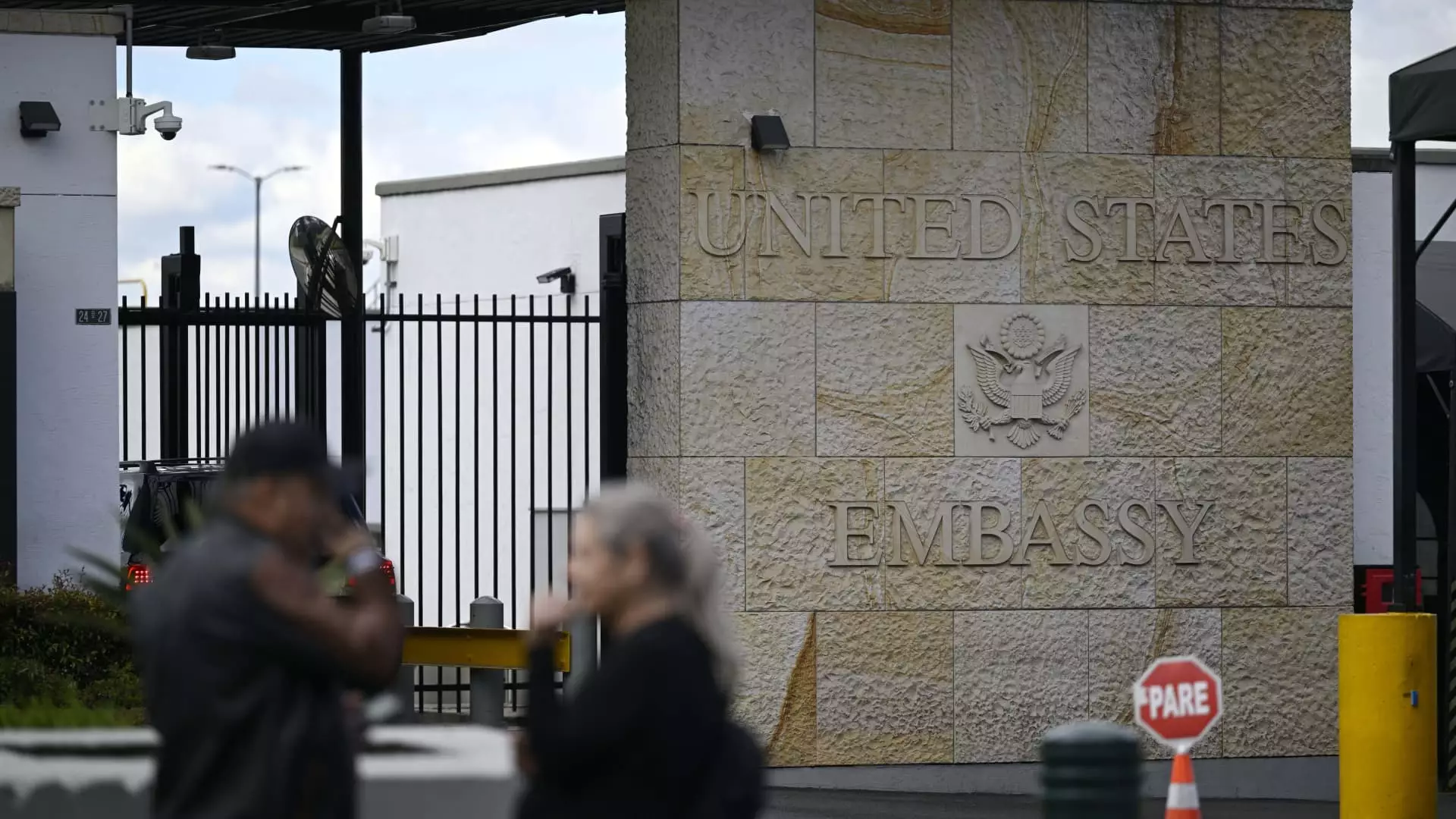The Trump administration’s handling of U.S. diplomatic operations has sparked significant dialogue regarding the future of American foreign policy and its implications for international relations. Reports indicating that embassies worldwide have been instructed to prepare for staff reductions highlight a pivotal shift in the approach towards diplomacy under President Trump. This article examines the ramifications of these changes, alongside the motivations and underlying philosophies that guide this transformation.
Recent disclosures from within the administration suggest that U.S. embassies have been asked to consider reducing their U.S. and locally-employed staff by approximately 10%. Such cuts reflect an attempt to reshape the U.S. diplomatic corps fundamentally. The rationale behind this directive appears to be rooted in a desire for a more streamlined operational model, one that mirrors the administration’s overarching “America First” philosophy. By diminishing the number of personnel, the administration seems intent on recalibrating diplomatic expenditures and reallocating resources to meet domestic priorities.
Additionally, these staffing changes align with the administration’s narrative of government efficiency, suggesting a move away from a traditionally expansive foreign service towards a leaner approach in managing international relations. While it is essential to ensure effective diplomatic engagement, such reductions also raise concerns about the capacity of U.S. embassies to engage with foreign entities and protect American interests abroad.
Internal Restructuring and Policy Implications
The directive to downsize comes on the heels of an executive order mandating a comprehensive revamp of the foreign service. By directing Secretary of State Marco Rubio to ensure that the foreign service embodies the president’s foreign policy objectives, Trump aims to establish a diplomatic framework more in line with his administration’s goals. This initiative is particularly significant given the potential disciplinary measures outlined for personnel who fail to adhere to the president’s directives.
This transformation suggests an agenda that prioritizes loyalty to presidential objectives over traditional diplomatic imperatives, potentially undermining the autonomy required for effective international diplomacy. The emphasis on an “exceptional workforce of patriots” hints at a narrower definition of patriotism—one that places alignment with the current administration above seasoned diplomatic practice and experience.
The administration’s strategy is not limited to staffing concerns. The freeze on foreign aid shortly after Trump took office has already shown its effects on various overseas initiatives. Agencies such as the U.S. Agency for International Development (USAID) have faced scrutiny and proposed reductions as the government seeks to align aid distribution with national interests rather than traditional humanitarian paradigms.
The approach adopted by President Trump, led by figures like billionaire Elon Musk, emphasizes a critique of government expenditure, positioning the U.S. as less of a global humanitarian leader. This radical recalibration raises concerns about the future of U.S. relationships with key allies and the potential erosion of American soft power, which has been historically significant in shaping international norms and behaviors.
The Broader Implications of “Cleaning Out the Deep State”
Central to Trump’s agenda is the notion of “cleaning out the deep state”—the idea of removing bureaucratic elements perceived as disloyal to his administration. Such rhetoric may serve to create an environment of fear and uncertainty among career diplomats who typically rely on their expertise and autonomy to navigate complex international situations.
The suggestion that failure to follow the president’s policy could result in disciplinary actions, including termination, positions career diplomats in a precarious situation. The implications for their work, particularly in times of crisis or when dealing with sensitive geopolitical challenges, could lead to a paralysis of decision-making, which may ultimately undermine U.S. interests abroad.
The Trump administration’s strategies involving significant staff reductions, restructuring of foreign service operations, and a reevaluation of U.S. foreign aid signify a pivotal moment in the landscape of American diplomacy. These moves, while aiming to enhance efficiency, risk sidelining the nuanced approaches required in international relations and potentially diminishing the U.S.’s standing on the global stage. As the administration continues to pursue its vision of an America-centric foreign policy, the question remains whether these changes will yield a robust and effective diplomatic corps or precipitate a retreat from its historically engaged role in global affairs.


Leave a Reply